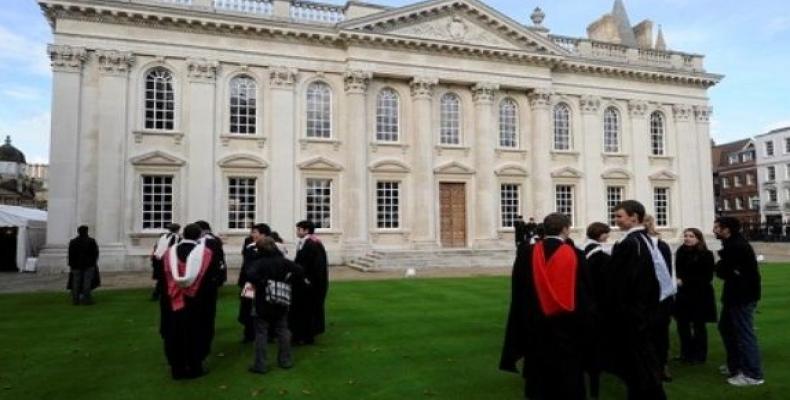London, February 3 (RHC)-- Preeminent private schools in Britain have disapproved of plans to expand access for the most disadvantaged students to the most selective universities in the country.
The Headmasters’ and Headmistresses’ Conference (HMC), representing many of Britain’s most expensive private schools, intervened against new proposals to widen the access to selective universities, arguing it could lead to discrimination against students from elite independent schools.
“Care is needed in starting actively to discriminate against individual young people on the basis of the class they were born into. The country needs all its young people to reach their potential if we are to create a bright new future for Britain post-Brexit,” HMC’s executive director Mike Buchanan said.
Buchanan added that universities should expand to accommodate as many “truly suitable students” as necessary, rather than “rob some students of a future to award it to others”.
He also called on universities to review the increasing number of international students, rather than “deny places to UK students based on their class.”
The HMC remarks came as a response to measures, published Wednesday by the university watchdog, the Office for Students (OfS), pledging to cut in two the access gap at the country’s most selective institutions within the next five years, increasing the number of disadvantaged students by 6,500 each year from 2024-25.
Students from privileged areas of Britain are currently more than six times as likely to attend top universities - like Oxford, Cambridge and other institutions grouped under an association named the Russell Group - than their peers from poverty-stricken areas.
Despite efforts in past years and the massive expansion in university places, the gap has almost remained the same. The OfS report presents ambitious commitments by universities to improve the equality of opportunity for all young people. Under the new plans, the contrast could be eliminated in 20 years.
The OfS is also hoping to reduce the difference between the proportion of white and black students awarded a top degree from 22 percent to 11 percent.
“It is clear that those students who attend independent fee-paying schools are more likely to be white and middle-class and are more likely to go on to hold top high-earning jobs. These schools continue to perpetuate privilege,” Kalwant Bhopal, a professor of education and justice at Birmingham University, said.


